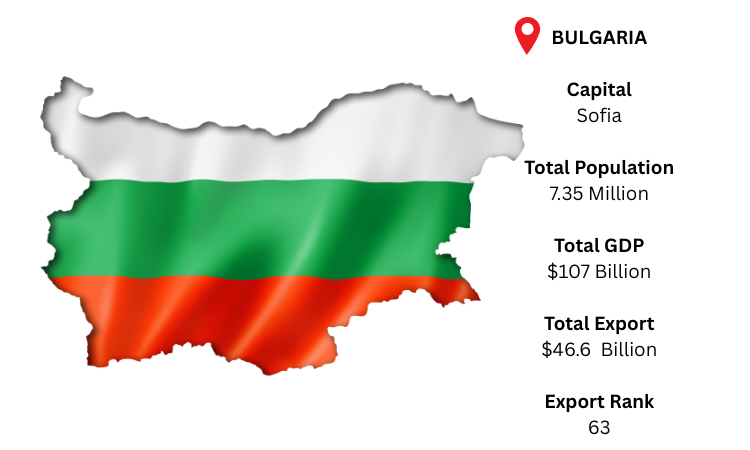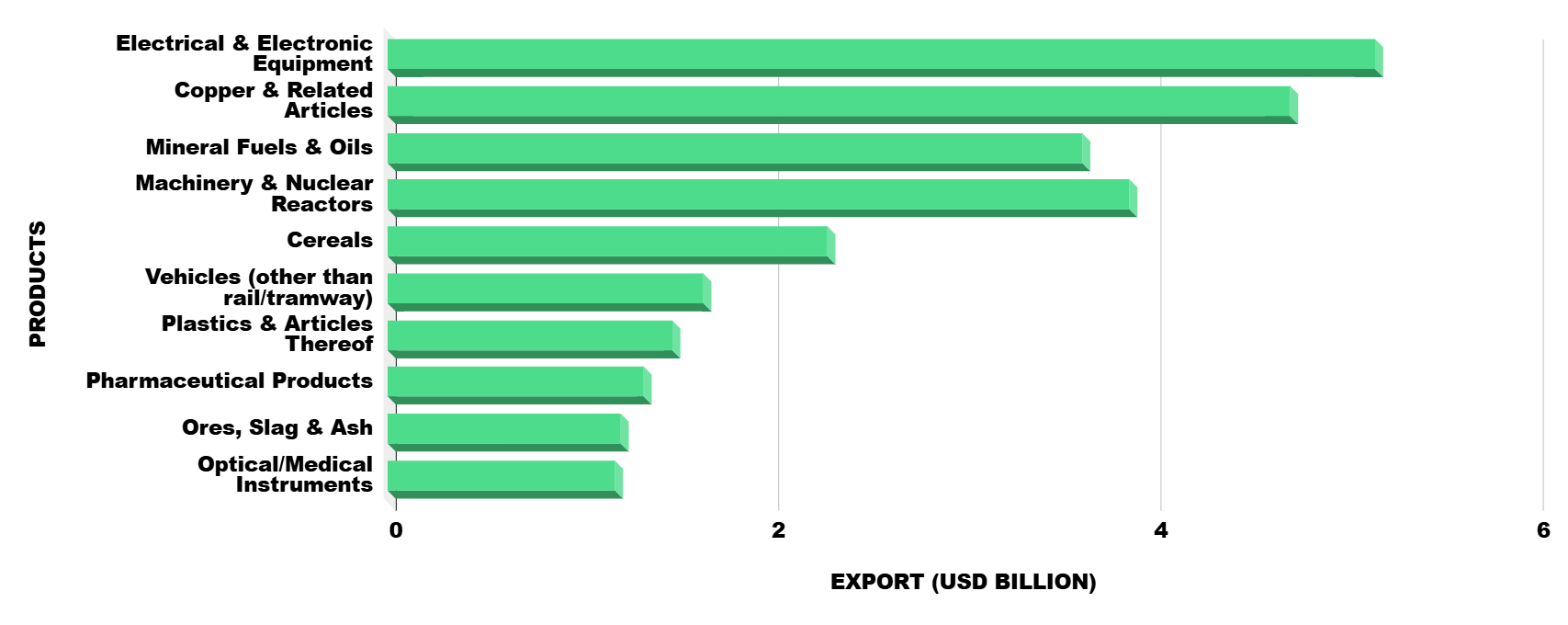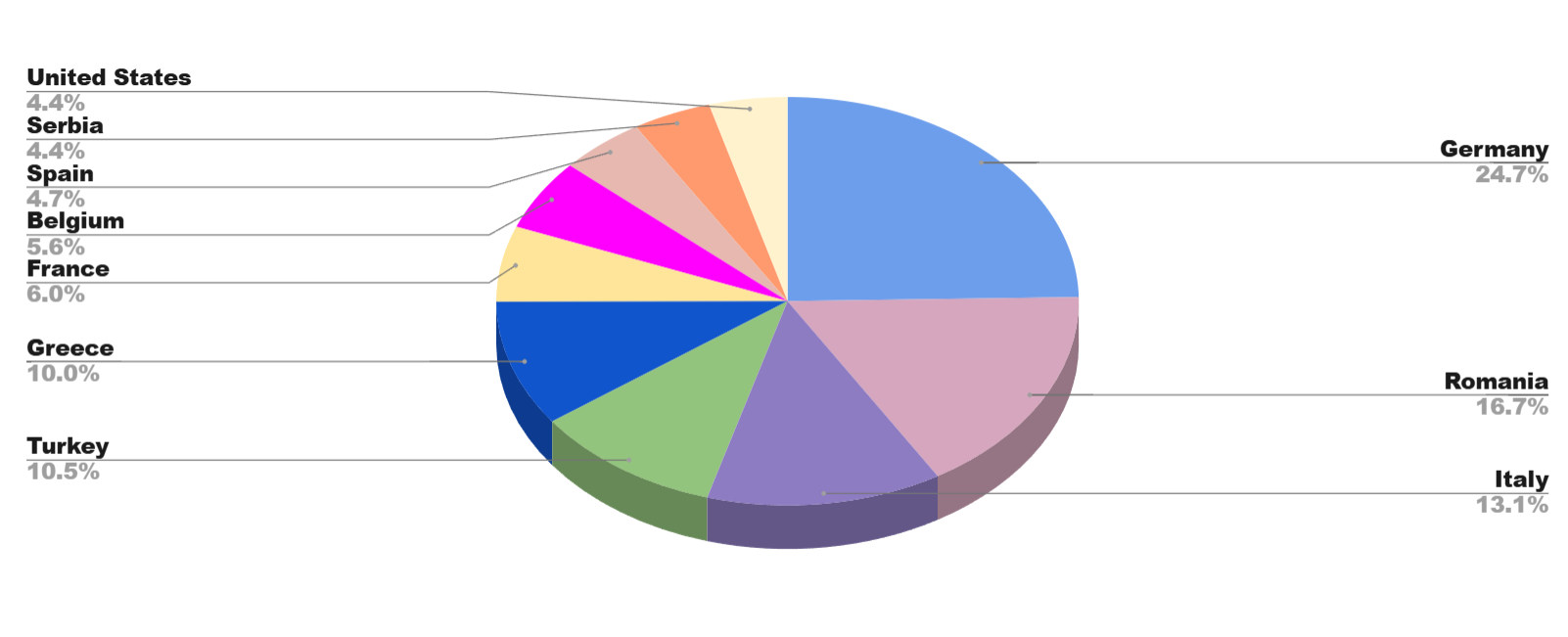The economy of the Southeast European nation of Bulgaria is becoming more and more tech-driven and industrialized. Sofia, the capital, serves as the hub for both the national government and business. It has a GDP of USD 107 billion and a population of around 7.35 million. As per Bulgaria export data, with total exports of about USD 46.6 billion in 2024, Bulgaria is ranked about 63rd in the world; yet, it has a trade imbalance due to increased imports. With electrical-electronic equipment at the top of its export range, Germany, Romania, and Italy are its major export destinations.
Bulgaria's rising position in regional commerce, particularly inside the EU, is supported by its burgeoning industrial, energy, and agri-tech sectors.



